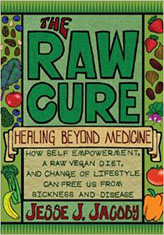What is in our tap water?
Calcium - Occurs naturally especially where the water flows through limestone or chalk
Sulphate, Magnesium, Sodium and Potassium - Naturally occurring as a result of the passage of water through minerals.
Manganese - Occurs naturally and is removed at the treatment works; it may also come from the corrosion of cast iron water mains causing a rusty brown discoloration to the water.
Aluminium - Found naturally in all water sources; chemical aluminium is used in the treatment process at some water works to remove naturally-occurring aluminium.
Nitrates - Occurs naturally from both mineral and soil processes and from agricultural activity.
Phosphorus - Occurs naturally and in fertilisers and detergents. Phosphate can protect again the uptake in lead from domestic plumbing systems.
Copper and Zinc - Presence is mainly due to contact with domestic plumbing systems.
Lead - Treated water is virtually lead free. Any presence is due to lead plumbing systems, common in many older properties.
Chlorine - Added to the water to kill harmful bacteria and to maintain a safe level for consumption.
Fluoride - Occurs naturally in some sources. some water supplies have fluoride added at the request of the local health authority.
Pesticides - May be in water from land that has been intensively farmed. Pesticides are removed during processing.
Bottled water -Plastic bottles contain Bisphenol A or BPA, which is a synthetic hormone disrupter that has been linked to multiple health problems, such as:
- Learning and behavioural problems
- Obesity
- Early puberty
- Prostate and breast cancer
In addition to the direct effect the use of plastic bottles has on our health, it would be wise to remember the damaging effects to the ecosystem.
Vitamin water - Cleverly marketed as a healthy drink, these are far from healthy. They contain high fructose corn syrup (HFCS), artificial colours, additives, preservatives and caffine.
Filtered water - The gold standard of drinking water.
Reverse osmosis filter - Removes the chlorine, inorganic and organic contaminants. These filters will also remove about 80 percent of the fluoride and disinfection byproducts.
Drawbacks - Expensive and may need a plumber to install.
Ion exchange filter - Designed to remove the salts from the water, thereby softening the water. The filters can exchange natural ions in the water with its own ions, neutralising their harmful effect of creating scale build-up.
Carbon filters - The most common of counter top and under counter water filter. Carbon filters remove contaminants through adsoption, which is the chemical or physical bond of a contaminant to the surface of the filter.
Granular activated carbon is considered the best for removal of organic chemicals like herbicides, pesticides and industrial chemicals. The downside of this type of carbon filter is the loose material inside, allowing for channelling of the water, potentially leading to some water being unfiltered.
Carbon block filters offers the benefits of granular activated carbon filters but use a solid material eliminating the risk of channelling.


 Articles by subject
Articles by subject Recent Articles
Recent Articles





